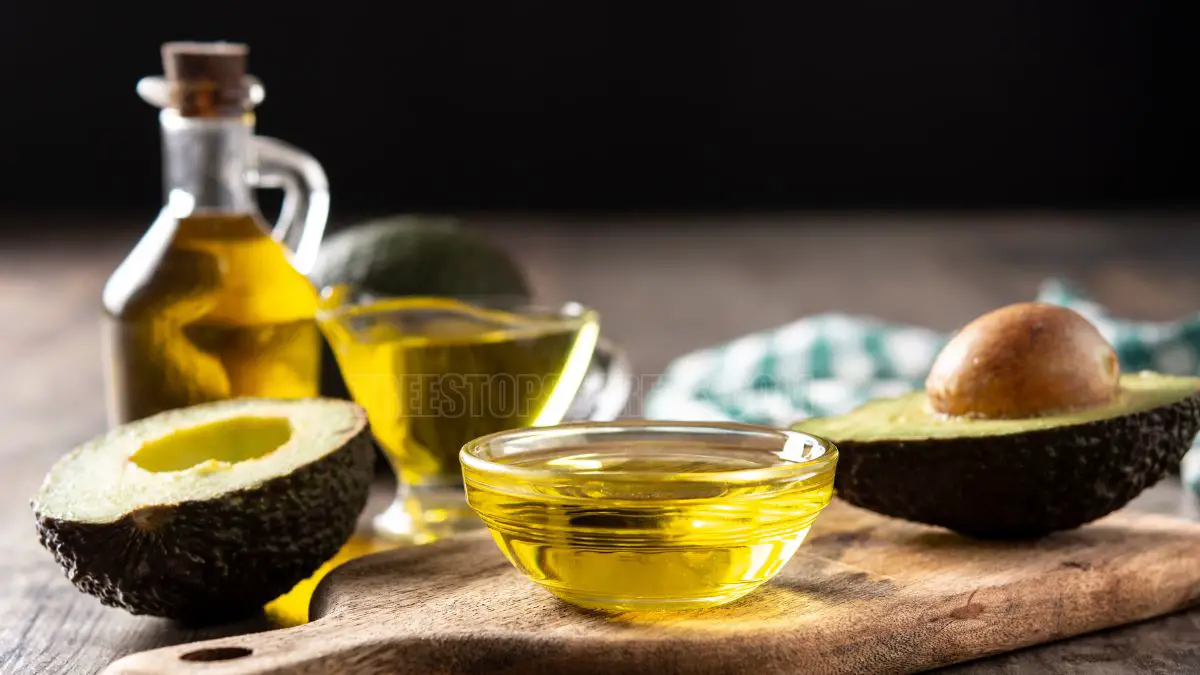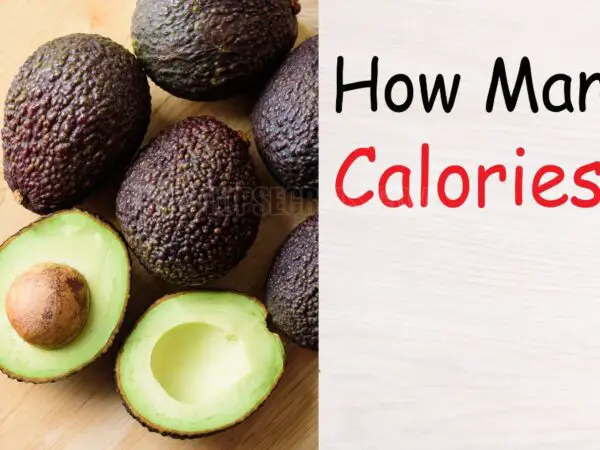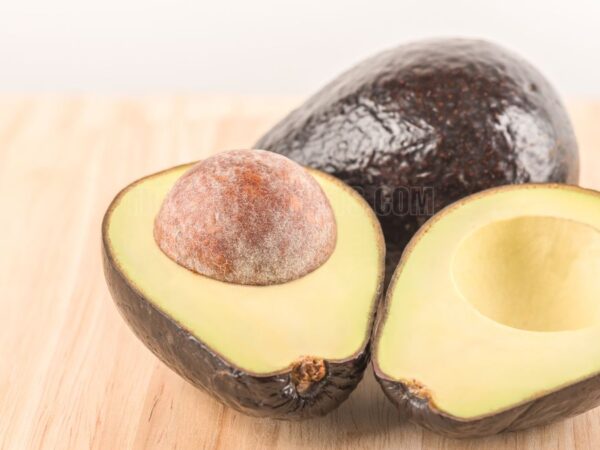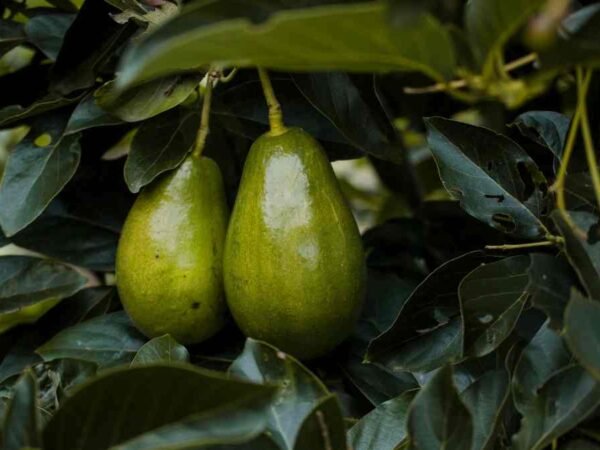Curious about avocado oil and its flavor? Avocado oil is gaining popularity in kitchens for its health benefits and versatility. But what does it actually taste like? In this post, we’ll break down the flavor profile of avocado oil, exploring its unique taste and how it compares to other oils. Whether you're considering it for cooking or as a salad dressing, understanding its flavor can help you make the best choice for your dishes.
Avocado oil has a mild, buttery flavor with a hint of nuttiness. It’s often described as smooth and rich, with a slightly grassy undertone. This makes it a versatile choice for various culinary uses, from sautéing to salad dressings. Its subtle taste doesn't overpower other ingredients, allowing the natural flavors of your dishes to shine through.
Ready to add a new twist to your cooking? Avocado oil’s unique taste and health benefits make it a fantastic choice for your kitchen. Read on to discover how this flavorful oil can enhance your recipes and why it's worth incorporating into your daily cooking routine.
Diving into Avocado Oil
What's the Deal with Avocado Oil?
Let me tell you, avocado oil is a treasure. Not just for cooking, but for your health too. It's squeezed right out of the avocado flesh, giving us a super-versatile oil. It's loaded with good stuff like triacylglycerols, fatty acids, and other goodies like squalene and tocopherols. No wonder it's a hit in both the kitchen and your beauty stash. Avocado oil can taste different depending on how it's made. Extra virgin keeps that lively taste, while refined oil goes for a milder, more neutral flavor.
How Does It Taste?
I've messed around with all kinds of oils, and avocado oil is a standout. It’s got a buttery, fruity, nutty vibe with a hint of sweetness, just like the avocado fruit. That makes it a superstar in a bunch of dishes. If you love bold flavors, extra virgin avocado oil has a bit of a "mushroomy" hint that’s pretty interesting. But don't forget, unlike olive oil, avocado oil often has a stronger, more bitter aroma. This can be a nice twist in certain dishes. Here’s a quick look at how the flavors stack up:
| Oil Type | Flavor Profile | Notes |
|---|---|---|
| Extra Virgin Avocado | Buttery, fruity, mushroomy | Fresh avocado taste stays intact |
| Refined Avocado | Mild, neutral | Great for all kinds of cooking |
| Olive Oil | Nutty, earthy | Perfect for Mediterranean dishes |
Grasping the taste of avocado oil can really up your cooking game. Whether you’re drizzling it on salads or mixing it into sauces, it’s a game-changer. Plus, those health perks? Total win-win.
Cooking with Avocado Oil
Thrill of High Heat
Let's talk about a kitchen hero—avocado oil. With a smoke point hitting around 500°F, it's perfect for high-heat cooking. Whether you’re pan-frying, grilling, or sautéing, this oil stands strong without breaking a sweat (or smoking up your kitchen) (DeLallo). Unlike olive oil, which taps out at lower heat, avocado oil lets you crank up the temperature with no worries about burnt flavors (The Spruce Eats). This high smoke point doesn't just prevent smoke—it keeps the food tasting fresh. Roasting veggies or searing steaks? Avocado oil ensures a crispy outer layer while keeping the juiciness inside. Here’s a quick snapshot of smoke points for some popular cooking oils:
| Oil Type | Smoke Point (°F) |
|---|---|
| Avocado Oil | 500 |
| Olive Oil | 375 - 420 |
| Vegetable Oil | 400 - 450 |
| Coconut Oil | 350 - 450 |
Kitchen Chameleon
Avocado oil is the Swiss Army knife of my kitchen. From roasting to salad dressings, it’s got my back. Its mild taste pairs well with nearly anything and adds a hint of nuttiness that's just right for many dishes. Some ways I love to use avocado oil:
- Stir-frying: Its high smoke point means veggies stay crisp and flavorful (The Spruce Eats).
- Baking: Swapping in avocado oil for butter or other oils gives baked goods extra moisture and a gentle flavor twist.
- Drizzling: A finishing touch on salads or roasted veggies, adding a rich, buttery finish.
Avocado oil's rising popularity shows it's more than just a fad. Besides cooking, folks are also discovering its cosmetic benefits (ScienceDirect). With all it brings to the table, it’s no wonder avocado oil has earned a permanent spot in my kitchen!
Awesome Perks of Avocado Oil
Why It Rocks
I keep reaching for avocado oil not just because it tastes great, but because it's packed with loads of awesome stuff for your body. Those monounsaturated fats, especially oleic acid, do wonders for your heart. Using avocado oil can help knock down bad cholesterol and keep your ticker in tip-top shape. And it doesn't stop there. Avocado oil is like a little superhero, brimming with antioxidants that help fend off diseases, support clear eyes, strong bones, and glowing skin. Here's a snapshot of what's inside:
| Good Stuff | Amount (per 100g) |
|---|---|
| Monounsaturated Fats | 71g |
| Polyunsaturated Fats | 13g |
| Saturated Fats | 11g |
| Vitamin E | 3.8 mg |
| Carotenoids (Lutein) | 0.4 mg |
| Phytosterols | 60 mg |
Keep in mind, the exact mix might change a bit with different types of avocados. This can tweak its flavor and health perks (PubMed Central).
Avocado Oil vs. Olive Oil
A lot of folks ask how avocado oil stacks up against olive oil, and it turns out they're pretty similar. Both are chock-full of those heart-loving monounsaturated fats, helping lower bad cholesterol and beef up heart health. Here's a side-by-side:
| Good Stuff | Avocado Oil (per 100g) | Olive Oil (per 100g) |
|---|---|---|
| Monounsaturated Fats | 71g | 73g |
| Polyunsaturated Fats | 13g | 11g |
| Saturated Fats | 11g | 14g |
| Vitamin E | 3.8 mg | 14 mg |
| Carotenoids (Lutein) | 0.4 mg | 0.0 mg |
| Phytosterols | 60 mg | 50 mg |
Both oils are rockstars at fighting inflammation and oxidative stress with their nutrient-dense profiles. I find myself swapping between the two in my cooking, depending on what vibe I'm going for (DeLallo). So, not only does avocado oil make my dishes taste even better, but it also piles on the health benefits, making it a no-brainer for anyone looking to add some healthy plant-based fats to their diet.
The Beauty Benefits of Avocado Oil
Avocado oil isn't just the secret sauce in your kitchen - it's a game-changer for your beauty routine too. Whether it’s for skin hydration or hair care, this golden oil can truly dazzle. I've seen the magic of avocado oil firsthand, and trust me, it’s a keeper.
Beauty Wonders
Avocado oil has made its mark in the beauty scene for ages. One major perk? It gets soaked up by your skin super easily - no sticky mess here! This oil doesn't just sit around; it stays potent longer, which is a win for any skincare fan. It blends beautifully into creams, lotions, and hair goodies too (ScienceDirect). Check out how avocado oil can work wonders:
| Use | Perks |
|---|---|
| Moisturizers | Deep hydration for thirsty skin |
| Hair Masks | Brings back shine and moisture |
| Soap | Keeps you clean and fresh the natural way |
| Creams | Calms down irritated or angry skin |
Seriously, avocado oil's a must-have in my beauty stash.
Hydration Heaven
Ever dealt with dry skin or frizzy hair? Avocado oil’s got your back. It's loaded with phytosterols, which dive deep into the skin like it’s nobody’s business. Plus, it's packed with lutein and carotenoids, giving your skin some solid protection against early signs of aging and other issues (ScienceDirect). Here’s why I can’t get enough:
| Use | Magic |
|---|---|
| Skin | Softens and moisturizes like a dream |
| Hair | Adds moisture, tames frizz, and gives it a gorgeous shine |
I slather this stuff on my face, especially if my skin’s acting up. Oh, and as a hair mask? Total lifesaver, especially after coloring or if my hair’s faced too much heat styling. With all these goodies packed in, avocado oil's made a permanent spot in my daily routine. Its rich nutrients and awesome effects make it the superstar of my beauty care. Try it, and you’ll see why it's a hit!
Types and Production of Avocado Oil
Hey there, avocados aren't just for guac anymore. Avocado oil—now that's some versatile magic in a bottle. But not all avocado oils are created equal. There's a lot more going on behind the scenes of that green liquid you drizzle on salads or massage into your skin.
Ways They Squeeze the Good Stuff Out
How they extract that oil really makes a difference in the final product. Here are some popular methods:
| Extraction Method | What's It All About |
|---|---|
| Cold Pressing | Avocados get a gentle squeeze at low temps to keep things fresh. |
| Ultrasound-Assisted Aqueous Extraction (UAAE) | Sound waves help bump up the efficiency and quality. |
| Supercritical CO2 | Uses supercritical carbon dioxide for top-notch extraction quality. |
| CO2 Subcritical | Similar but goes easy on the pressure. |
| Enzymatic Extraction | Enzymes break down cell walls for more yield. |
| Solvent Extraction | Solvents do the work, but may mess with purity. |
Each method tweaks the oil’s makeup—like peroxide levels and antioxidants.
Types of Avocado Oil
Knowing the types can help you pick the right one for your needs. Here’s the lowdown:
| Avocado Oil Type | What's Inside the Bottle |
|---|---|
| Extra Virgin | Top-tier fruit, cool press, no chemicals. |
| Virgin | Almost as good as extra virgin, also a cool press. |
| Pure | Bleached and deodorized, sometimes jazzed up with natural flavors. |
| Mixed | A mix with other oils, like olive or macadamia, for various special uses. |
Depending on the type and origin of avocado, and the extraction method, the taste, fatty acids, and other goodies in the oil vary. So there you have it. Next time you're picking avocado oil, you'll know what's what. Whether you're cooking up a storm or pampering yourself, you can choose the best.
Substitutions and Avocado Oil Uses
Avocado oil is a versatile player in both the kitchen and your beauty stash, but what about when you run out? Don't fret. Here are some handy alternatives and personal faves for both cooking and cosmetic uses.
Cooking Alternatives
Run out of avocado oil? No problem. There are plenty of stand-ins that can do the trick depending on what you're whipping up. Here's a quick rundown:
| Oil Type | Common Uses | Smoke Point (°F) |
|---|---|---|
| Olive Oil | Dressings, sautéing | 375 - 420 |
| Grapeseed Oil | Stir-frying, baking | 420 |
| Coconut Oil | Baking, frying | 350 - 385 |
| Sunflower Oil | Frying, baking | 440 |
| Peanut Oil | Frying, Asian dishes | 450 |
| Vegetable Oil | Frying, general cooking | 400 - 450 |
You can swap avocado oil with options like olive, grapeseed, peanut, sunflower, or vegetable oil depending on what you've got and your recipe's cooking temperature (DeLallo). This way, there's no need to panic—you’ll still serve up tasty and nutritious meals.
Culinary and Cosmetic Preferences
In the kitchen, avocado oil can moonlight as olive, coconut, or vegetable oil, a straight 1:1 swap. This keeps the yum-factor high while letting you enjoy the health perks of avocado oil (Healthline). Its mild taste plays well with all kinds of dishes, making it a go-to for cooking and baking alike (Medical News Today). When it comes to beauty, avocado oil is like a hug for your skin and hair. It can easily step in for almond oil or jojoba oil in your beauty routine, whether you’re moisturizing or doing a hair treatment. Its rich, nourishing properties make it a fabulous natural option for anyone who wants to dial up their skincare or haircare game.
Wrapping it Up
So, the next time you run out of avocado oil, you've got options—both in your kitchen and your beauty routine. Enjoy its unique flavor and versatility while knowing how to tap into its substitutes without skipping a beat.
Final Thoughts
Understanding Avocado Oil Taste Avocado oil offers a mild, buttery taste with subtle nutty notes, making it a versatile ingredient for many recipes. Its unique flavor profile enhances dishes without overpowering them, making it an excellent choice for both cooking and dressings. By understanding its taste, you can better utilize avocado oil to complement and elevate your meals.
FAQs about "What Does Avocado Oil Taste Like"
Q: What does avocado oil taste like? A: Avocado oil has a mild, buttery flavor with a hint of nuttiness. It’s smooth and slightly grassy, making it a versatile addition to many dishes. Q: How can I use avocado oil in cooking? A: Avocado oil is great for sautéing, roasting, and frying due to its high smoke point. It’s also excellent in salad dressings and marinades, adding a subtle, rich flavor. Q: Does avocado oil taste different from olive oil? A: Yes, avocado oil has a milder and more buttery taste compared to the often stronger and more peppery flavor of olive oil. Q: Can avocado oil be used for baking? A: Absolutely! Avocado oil’s mild flavor makes it a good choice for baking, providing a moist texture without altering the taste of your baked goods. Q: Is avocado oil suitable for people with nut allergies? A: Yes, avocado oil is safe for those with nut allergies as it’s made from avocados, not nuts. However, always check labels to ensure there’s no cross-contamination. Q: How should I store avocado oil to maintain its flavor? A: Store avocado oil in a cool, dark place to keep it fresh and preserve its mild flavor. Proper storage helps prevent oxidation and prolongs its shelf life.
Image Source: Paid image from CANVA





